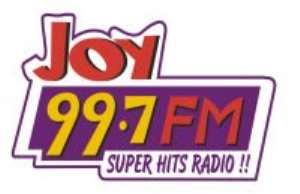
Joy FM and Peace FM, two Accra based radio stations, have been commended on their role of providing balanced media coverage to the major political parties in the 2008 Presidential and Parliamentary elections.
This was contained in the final report of the European Union Election Observation Mission (EU EOM) to Ghana that monitored last year's presidential and parliamentary elections.
The EU EOM was present in Ghana from 1 November 2008 to 24 January 2009 following an invitation from the Electoral Commission to assess the electoral process against international and regional standards for elections as well as the laws of Ghana and was led by Nickolay Mladenov, Member of the European Parliament (Bulgaria).
From the 11 November to 27 December 2008 the EU EOM monitored a cross section of Ghanaian media. The sample of media included three television channels (the state-owned Ghana TV and the private channels Metro TV and TV3) and four Accra based radio stations (the state-owned GBC, and the private stations Joy FM, Peace FM and Radio Gold). A further two private radio stations were monitored in the regions of Ashanti and Tamale (limited sample of news). Four daily newspapers were monitored including the state-owned Daily Graphic and Ghanaian Times, the Daily Guide and the Chronicle.
Reflecting their strong position in Ghanaian politics, the NPP and NDC received a wide range of coverage across the media. In contrast the smaller parties received very low levels of coverage.
Joy FM and Peace FM provided balanced coverage of the two main political parties with the NPP and NDC receiving 38 and 34 percent share of coverage of political actors on Joy FM and 32 and 28 percent on Peace FM with the remaining coverage largely afforded to the PNC and CPP.
For the second round election the airtime afforded to the NDC and NPP was also generally balanced on Peace FM and Joy FM. Peace FM devoted 46 percent of its coverage to NDC, 49 percent to the NPP and five percent to the president. Joy FM afforded a 51 percent share of its coverage of political actors to NPP, 45 percent to NDC and four percent to the president.
According to the report, despite the general positive nature of most media coverage, there were instances of aggressive and negative campaigning, both in the paid-for-advertisements of the parties as well as in discussion programmes aired by some private radio stations.
A positive development on election days was that radio stations provided wide coverage of polling and played an active role in alerting the Electoral Commission to any problems and provided a very constructive contribution on election day.




 Akufo-Addo’s recent attitude, utterances connote an arrogant nature, smack of an...
Akufo-Addo’s recent attitude, utterances connote an arrogant nature, smack of an...
 NDC calls for immediate termination of contracts between SML and GRA
NDC calls for immediate termination of contracts between SML and GRA
 NDC demands retrieval of monies paid to SML, calls for the prosecution of person...
NDC demands retrieval of monies paid to SML, calls for the prosecution of person...
 NDC accuses President Akufo-Addo of attempting to cover up corruption and crimin...
NDC accuses President Akufo-Addo of attempting to cover up corruption and crimin...
 Election 2024: ‘I don't want issues of independent candidature to plague NPP’ — ...
Election 2024: ‘I don't want issues of independent candidature to plague NPP’ — ...
 2024 elections: Bawumia avoiding economic discourse because he has failed — Kwak...
2024 elections: Bawumia avoiding economic discourse because he has failed — Kwak...
 Mustapha Ussif’s ‘Best African Sports Minister’ award signifies his exceptional ...
Mustapha Ussif’s ‘Best African Sports Minister’ award signifies his exceptional ...
 Anti-LGBQI+ Bill: High Court’s verdict was predetermined – Sam George
Anti-LGBQI+ Bill: High Court’s verdict was predetermined – Sam George
 Justification for continuation of SML-GRA contract ‘hogwash’ – Sammy Gyamfi
Justification for continuation of SML-GRA contract ‘hogwash’ – Sammy Gyamfi
 Bawumia is a liar, google it and see – Osofo Kyiri Abosom
Bawumia is a liar, google it and see – Osofo Kyiri Abosom
